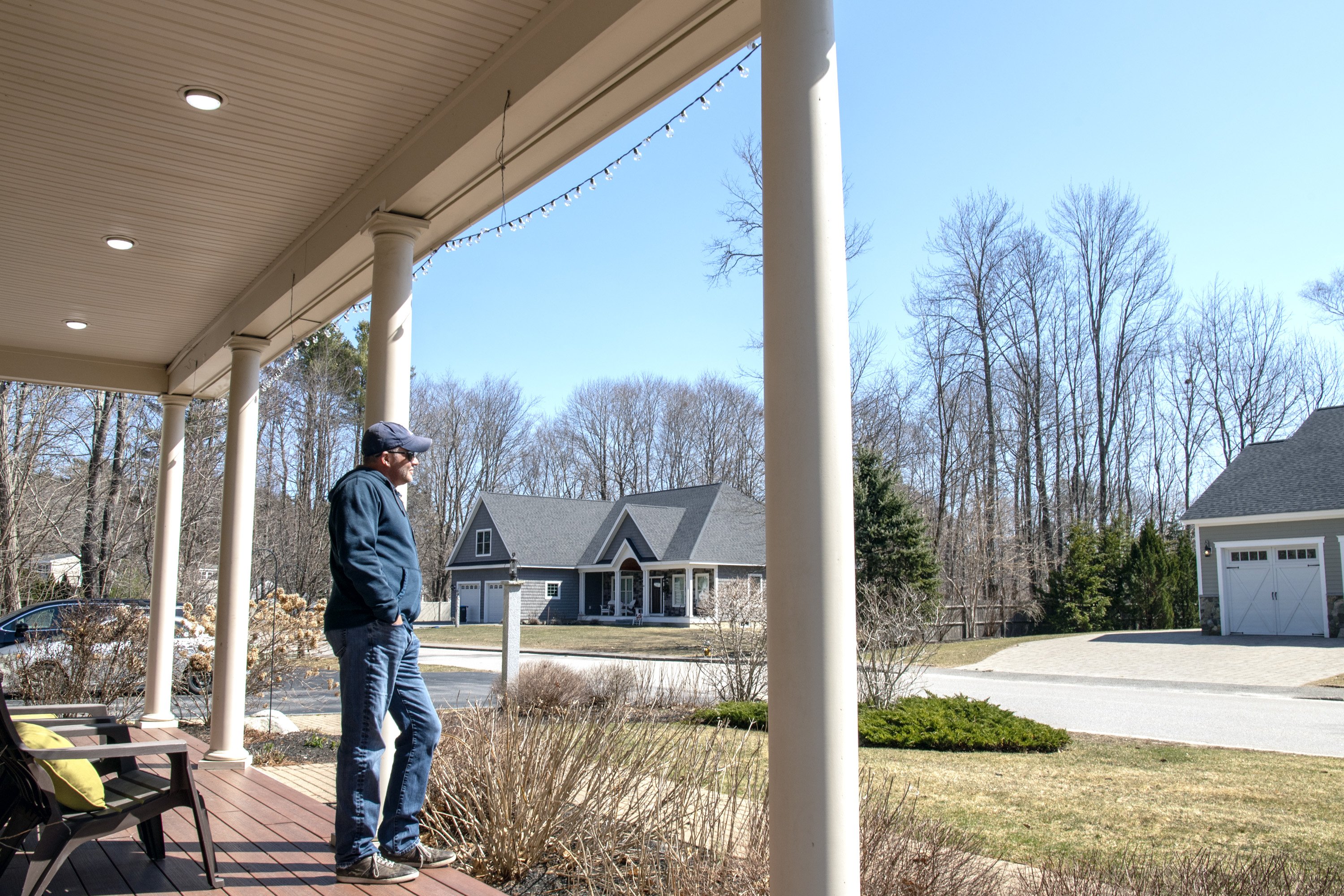“Topple.” That was the verb our reporters chose to characterize the failure of a proposal for the development of a large housing project in Saco (“Anatomy of a housing proposal toppled by NIMBYs,” April 9). The fourth and latest installment of “Locked Out,” a series of reports on Maine’s deep-seated housing crisis, charted the spectacular demise of a plan for a group of 288 condominiums and a few dozen single-family homes and townhomes, and explored the forces behind that ultimate toppling of the Lincoln Village development.
Those forces were, for the most part, emotional. As familiar as those forces have become to us in recent years, it can still — in the face of our grave and ever-increasing need for an accessible, affordable mix of housing — come as a shock when they succeed in tipping the scale. “I wasn’t expecting to have a red carpet and parade, you know, and a statue of me in front of the subdivision for being a hero for taking this on,” said the Maine-based developer behind the Saco proposal, Lori Graiver.

“But I did expect a lot more common-sense people who could see this was a cool product that could help solve a lot of problems.” Graiver’s cool product was not contingent on any new or special zoning. It received preliminary approval from the Saco planning board.
After unrelenting pressure from residents, that approval was revoked five months later. To skim the reporting on the factors at play in the Saco story is to encounter a host of by now well-trodden concepts, held close and wielded aggressively by existing residents, that tend to underpin organized arguments against building badly needed residential units in Maine. Opponents invoke potentially sprawling ideas like the preservation of history; of character; the risk of disruption locally; the question of whether or not something “belongs”; the argument that something is spiritually or aesthetically “wrong for the community”; the consequences of a tacit invitation to “outsiders”; the connected risk of increased property values; and the effect such an increase might have on a town’s ability to secure grant funding.
An early position statement of one of the leading opponents to Saco’s Lincoln Village opened by professing the community group to be “not opposed to the land being developed.” It went on to say that, “in both philosophical and personal ways,” the group understood the housing crisis and the need to build homes. Upon reaching the third of six bullet points, however, the gloves came off.
The problem, the statement of June 2022 said, was one of scale of the project (deemed excessive); its potential impact on traffic, schools and neighboring homes; and a lack of what it called “accountability” and attention to the group’s members, who were seeking an opportunity for “input and collaboration.” Almost three years on, we are now in a very good position to assess the outcome of that community input (the basic availability of which simply isn’t in question in your average modern American municipality — to suggest otherwise is to paint a cynical picture of our evidently still-pliable civic and social reality). The result of “input and collaboration” that has only “no” at its core is, as we’ve seen time and again, no housing at all.
This is the tragedy of this type of local control. “While other towns in Maine are facing similar pushback to development proposals from outspoken resident groups, Saco’s version is the most crystal clear example of civic engagement transcending into cultural gatekeeping that will actually hurt the vibrancy and strength of a community in the long term,” one former official, who did not want to be identified for fear it could harm their business, told the paper. Beyond the depressing fear of personal retribution in the place you live and work, it seems safe enough for us to suggest that all businesses in Saco will be hurt by the deeply off-putting manner in which this bit of business played out.
Here’s the hard truth: If Maine is to survive, it must evolve. The young, the old and the newly arrived here need places to live. The alternative to some buildings cannot be no building at all.
Until Maine’s opponents to residential development take steps to come good on their claimed interest in collaborating, until they show willingness to work jointly to create housing and succeed in creating it, such claims simply cannot be taken seriously. Toppling — think of dominoes — will win the day. We believe it’s important to offer commenting on certain stories as a benefit to our readers.
At its best, our comments sections can be a productive platform for readers to engage with our journalism, offer thoughts on coverage and issues, and drive conversation in a respectful, solutions-based way. It’s a form of open discourse that can be useful to our community, public officials, journalists and others. Read more.
.. We do not enable comments on everything — exceptions include most crime stories, and coverage involving personal tragedy or sensitive issues that invite personal attacks instead of thoughtful discussion.
For those stories that we do enable discussion, our system may hold up comments pending the approval of a moderator for several reasons, including possible violation of our guidelines. As the Maine Trust’s digital team reviews these comments, we ask for patience. Comments are managed by our staff during regular business hours Monday through Friday and limited hours on Saturday and Sunday.
Comments held for moderation outside of those hours may take longer to approve. By joining the conversation, you are agreeing to our commenting policy and terms of use . More information is found on our FAQs .
You can modify your screen name here . Show less Please sign into your Sun Journal account to participate in conversations below. If you do not have an account, you can register or subscribe .
Questions? Please see our FAQs . Your commenting screen name has been updated. Send questions/comments to the editors.
.
Politics

In seeking to preserve their communities, Mainers risk killing them | Editorial

No housing, no options. No options, no dynamism.















